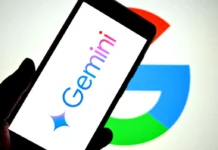Blockchain is a distributed ledger technology that enables secure, transparent, and efficient transactions. Learn what blockchain is, how it works, and its future implications in this comprehensive guide.
Introduction
Blockchain has been one of the most transformative technologies in recent years, with its impact being felt across industries and sectors. At its core, blockchain is a distributed ledger technology that enables secure, transparent, and efficient transactions without the need for intermediaries. In this guide, we will explore what blockchain is, how it works, and its future implications.
What is Blockchain?
Blockchain is a digital ledger that records transactions across a decentralized network. The ledger is maintained by a network of computers, known as nodes, which validate and confirm the transactions. Each block in the chain contains a timestamp and a unique cryptographic hash that links it to the previous block, creating an immutable and transparent record of all transactions.
How Does Blockchain Work?
Blockchain works by using a consensus mechanism to validate transactions and add them to the ledger. When a user initiates a transaction, it is broadcast to the network and validated by the nodes using a consensus algorithm. Once the transaction is validated, it is added to a block, which is then added to the chain.
The blockchain is maintained by a network of nodes that communicate with each other to ensure the integrity of the ledger. The nodes use cryptographic algorithms to verify transactions and ensure that no fraudulent activity takes place. Once a block is added to the chain, it cannot be altered, making the blockchain an immutable and tamper-proof record of all transactions.
What are the Types of Blockchain?
There are three main types of blockchain:
- Public Blockchain: A public blockchain is a decentralized network that anyone can join and participate in. Bitcoin is an example of a public blockchain.
- Private Blockchain: A private blockchain is a closed network that only authorized users can access. Private blockchains are often used by businesses and organizations to streamline their operations.
- Consortium Blockchain: A consortium blockchain is a hybrid of public and private blockchains. It is controlled by a group of organizations rather than a single entity.
What are the Future Implications of Blockchain?
Blockchain has the potential to disrupt a wide range of industries and sectors, including finance, healthcare, supply chain management, and more. Here are some of the future implications of blockchain:
- Increased Efficiency: Blockchain can streamline and automate many processes, reducing the need for intermediaries and saving time and money.
- Improved Transparency: Blockchain provides a transparent and immutable record of all transactions, reducing the risk of fraud and increasing trust between parties.
- Enhanced Security: Blockchain uses advanced cryptographic algorithms to secure transactions, making it virtually impossible to hack or manipulate the ledger.
- Decentralization: Blockchain is a decentralized technology that eliminates the need for a central authority, giving power back to the people.
FAQs
Q. Is Blockchain secure?
A. Yes, blockchain uses advanced cryptographic algorithms to secure transactions and ensure the integrity of the ledger.
Q. How is blockchain different from traditional databases?
A. Blockchain is a distributed ledger that is maintained by a network of nodes, whereas traditional databases are centralized and maintained by a single entity.
Q. Can blockchain be used for anything other than cryptocurrency?
A. Yes, blockchain has a wide range of applications, including supply chain management, healthcare, and voting systems.
Conclusion
Blockchain is a revolutionary technology that has the potential to transform the way we do business and interact with each other. Its future implications are vast and wide-ranging, and it is essential for businesses and organizations to understand how it works and how it can benefit them. As blockchain continues to evolve and mature, it will undoubtedly play a significant role in shaping the future of our world.











